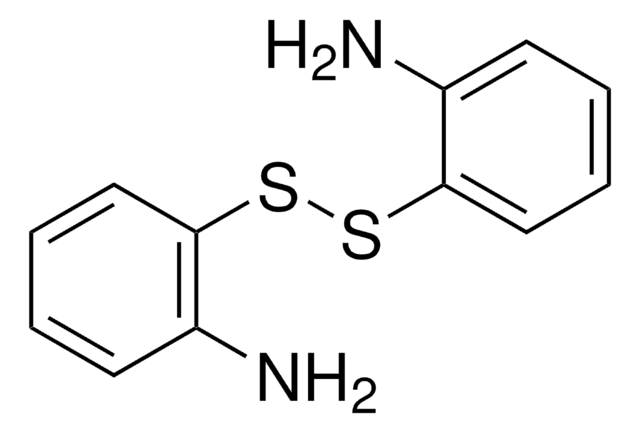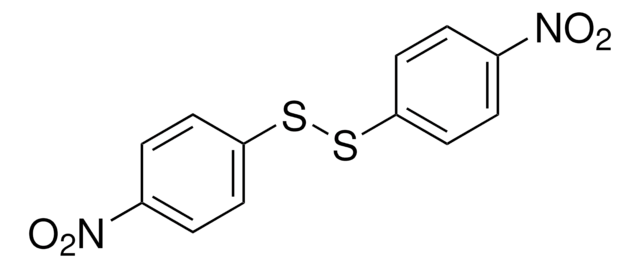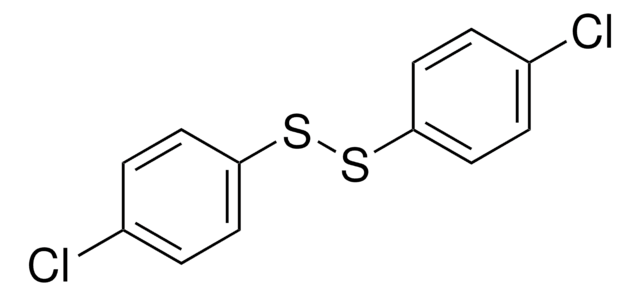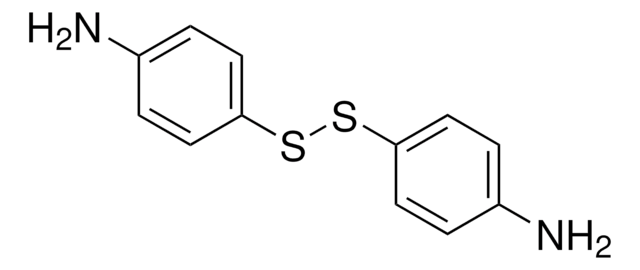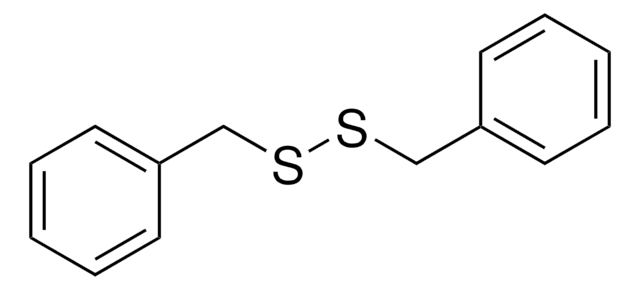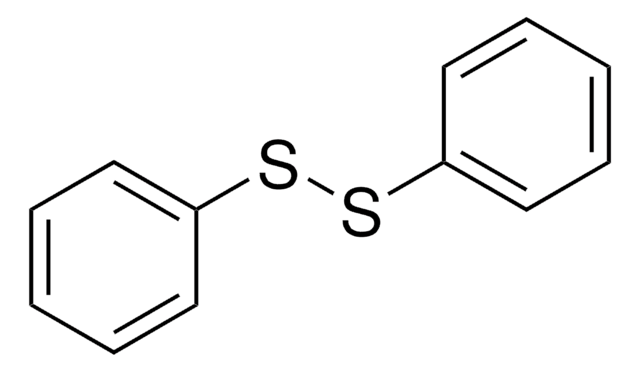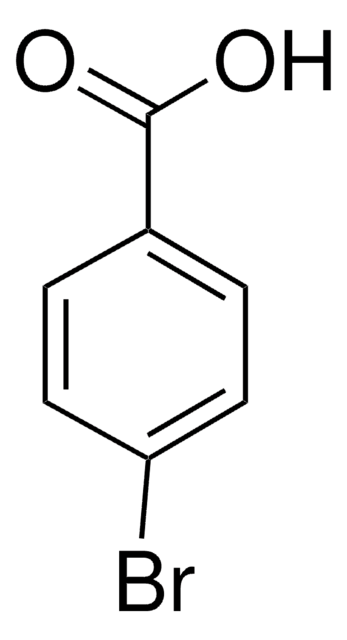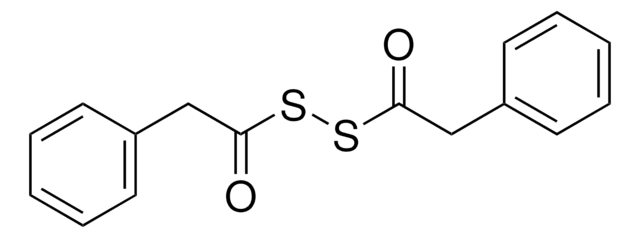215228
Bis(2-nitrophenyl) disulfide
99%
Synonym(s):
2-Nitrophenyl disulfide
About This Item
Recommended Products
Assay
99%
form
solid
mp
194-197 °C (lit.)
functional group
disulfide
nitro
SMILES string
[O-][N+](=O)c1ccccc1SSc2ccccc2[N+]([O-])=O
InChI
1S/C12H8N2O4S2/c15-13(16)9-5-1-3-7-11(9)19-20-12-8-4-2-6-10(12)14(17)18/h1-8H
InChI key
NXCKJENHTITELM-UHFFFAOYSA-N
Looking for similar products? Visit Product Comparison Guide
General description
Storage Class Code
4.1A - Other explosive hazardous materials
WGK
WGK 3
Flash Point(F)
Not applicable
Flash Point(C)
Not applicable
Personal Protective Equipment
Choose from one of the most recent versions:
Certificates of Analysis (COA)
Don't see the Right Version?
If you require a particular version, you can look up a specific certificate by the Lot or Batch number.
Already Own This Product?
Find documentation for the products that you have recently purchased in the Document Library.
Customers Also Viewed
Our team of scientists has experience in all areas of research including Life Science, Material Science, Chemical Synthesis, Chromatography, Analytical and many others.
Contact Technical Service